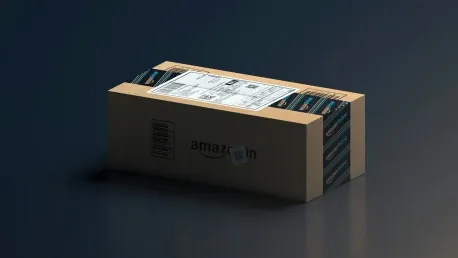In a recent civil lawsuit, Amazon was accused of violating consumer protection laws in Washington, D.C., by withholding benefits from Prime members in two specific zip codes due to safety concerns. The lawsuit, filed by the district’s attorney general, contends that Amazon secretly reduced its fastest delivery services for nearly 50,000 Prime members living in historically underserved regions east of the Anacostia River starting mid-2022. These regions, predominantly consisting of Ward 7 and 8, have historically faced various socioeconomic challenges, adding a layer of complexity to this legal battle.
Prime members pay $139 annually or $14.99 monthly, expecting expedited delivery as a primary benefit. However, the lawsuit alleges that Amazon systematically withheld this benefit from members in the affected zip codes, breaching Washington, D.C.’s Consumer Protection Procedures Act, which prohibits deceptive and unfair business practices. Before Amazon’s purported policy change, over 72% of Prime deliveries to these areas occurred within two days of checkout. After the change, that figure dropped to only a quarter, whereas delivery speeds in other parts of the city improved significantly.
Allegations and Lawsuit Claims
Amazon’s Misleading Practices
The complaint argues that Amazon misled residents, leading them to believe they would receive two-day shipping, thus deceiving existing members and inducing others to sign up for Prime. The attorney general’s office asserts that Amazon responded to complaints by claiming that slower delivery times were rare and unintentional. According to the lawsuit, Amazon’s marketing materials indicate that same-day delivery is available only in select areas but say nothing about limitations on one- and two-day shipping, which the lawsuit claims is misleading.
An Amazon spokesperson, Kelly Nantel, refuted the claims as “categorically false,” asserting that the changes in delivery routes and times were strictly for driver safety. Amazon pointed out efforts to be transparent with customers about expected delivery times during the purchasing process, continually reviewing various conditions such as safety, weather, volume, and speed to best serve customers while prioritizing driver safety. Nantel stressed that Amazon’s changes, including reserving deliveries for daytime hours and relying on third-party services like UPS and USPS, were necessary due to specific and targeted acts against drivers in the affected areas.
Impact on Residents and Prime Members
The lawsuit claims that Amazon failed to notify prospective Prime members in these zip codes about the slower deliveries until after they signed up. This practice affected a significant portion of the population in these historically underserved parts of the District. Nearly half of the residents in these zip codes are Prime members, who signed up under the impression that they would receive the same level of service as other areas in D.C.
In reality, these members experienced a significant drop in delivery speed, contrary to the expectations set by Amazon’s marketing. The complaint highlights the deceptive nature of Amazon’s actions, arguing that the company essentially charged Ward 7 and 8 residents for a service they did not fully deliver. This practice perpetuates a cycle of inequality, where residents of underserved areas receive less value for their money compared to those in more affluent regions.
Amazon’s Defense and Response
Safety Measures and Operational Adjustments
Amazon defended its actions by highlighting the safety concerns that prompted changes in delivery practices. According to the company, the safety of their drivers is of utmost importance, and adjustments were made to ensure their well-being. Nantel explained that Amazon had to navigate specific and targeted acts against drivers in the mentioned zip codes, leading to a decision to restrict daytime deliveries and use third-party services known for slower delivery times.
Amazon maintains that these changes were implemented transparently, informing customers about expected delivery times during the purchasing process. The company continually reviews various factors such as safety, weather, volume, and speed to provide the best service while ensuring driver safety. However, the attorney general’s lawsuit alleges that these measures were not adequately communicated to consumers, resulting in Prime members in certain zip codes being misled about the benefits of their membership.
Future Implications and Legal Proceedings
Amazon is facing a civil lawsuit in Washington, D.C. for allegedly violating consumer protection laws by withholding benefits from Prime members in certain zip codes due to safety concerns. The district’s attorney general claims that Amazon secretly reduced its fastest delivery services starting mid-2022 for nearly 50,000 Prime members in historically underserved areas east of the Anacostia River. These areas, mainly in Ward 7 and 8, have faced numerous socioeconomic challenges over the years, adding complexity to the case.
Prime members pay $139 a year or $14.99 monthly for expedited delivery as a key benefit. The lawsuit argues that Amazon systematically withheld this benefit, violating Washington, D.C.’s Consumer Protection Procedures Act, which outlaws deceptive and unfair business practices. Prior to the alleged policy shift, over 72% of Prime deliveries in these zip codes were made within two days of checkout. However, post-change, that percentage plummeted to just 25%, while delivery times in other parts of the city improved significantly.









